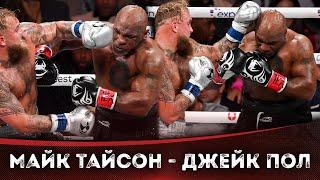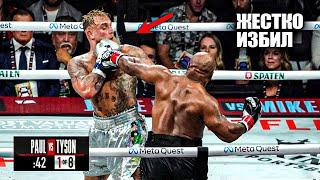
Position sizing, Progressive Exposure, Risk Management
Комментарии:

@drmansipd, you mentioned no more than 2 trades to risk no more than 2% of equity. Did you ever violate the rule when you are trading your best and think of more aggressive to step on gas?
Ответить
Big thank you, one of the few who provides value in the trading community.
Ответить
Can you improve your sound?
Ответить
Hi Dr. Mansi, love your video!
I have a question regarding your strategy on position scaling. If your maximum risk position is limited to two and you only scale up after two consecutive winning stocks, what should I do in this situation?
Currently, I hold two stocks: one has become risk-free after hitting 1R, and I've moved the stop-loss to the entry point, while the other has not yet reached the risk-free stage. However, my buy slot is open now. Should I scale up the position size on the existing stock in this scenario, or should I maintain the current size and use the slot to buy a new position? Thanks !

Excellent content.
Ответить
Ohh boy fellas, I think I found another real one like Michael Martin! 😁
Ответить
how do you maintain the spreadsheet with this logic if you want to sell some share partially into strength ? Can you share ?
Ответить
Really good video!
Ответить
Thanks for a great video. In the video it shows selling all shares at once. Do all sames rules apply if selling in 3/4 stages? Do you wait until completely out of current position to buy next position ?- If you book profits along the way.
Ответить
Great explanation of the concept!
The only thing I wish you would have mentioned that took me a little bit to figure out why this worked beautifully the way it does, is that you are getting a 1:2 risk/reward ratio for these trades. You can therefore suffer 2 losers in a row on increased risk size and still end up with roughly the same account size. Also of course this is a hypothetical example, where in the real world you would have a large variance in the risk/reward.

I think this will save my trading career, thanks so much
Ответить
i want that google sheet for myself can i get?
Ответить
Thanks A Tonne :)
Ответить
Hello, you have explained position sizing very well. How do we apply this concept to positional trading where we do not take profits very often.
Ответить
I am also curious how to add up position on next breakout
In ur video, you do position trade or swing trade
For ur position trade,
When ur stock have another breakout on vcp setup,
Do you buy it with ur original shares or sell ur shares and buy again?
For me, I use Quallamaggie method,
I sell half or 1/3 position on 3~5 days and hold the rest of shares until it closes below 10 ema.
So it means I will purchase on next breakout while I still has shares

I love you and respect you as a trader,
You are very smart and calm trader, thank you for sharing ur skills for freeeee
It is my honor to see the contents from 10 yrs + experienced professional trader on the other world and it is free😅

Mam. In the video how come the quantity is same. As the quantity needs to get increased right upon increasing the position sizing. Say for a 0.25% of PF risk, we can go up to 6.25% of allocation with 4% SL or 12.5% of allocation with 2% SL or 25% of allocation with 1% tight SL if I’m entering in a low cheat setup. The position sizing will be vary and so the quantity right. May u pls clarify me here like how quantity is same. Means u take stable 5% SL for all this trades?
Ответить
I have one question. If first trade(0.25% risk ) is successful but second trade(also 0.25% risk) lose money. and then third trade(0.25% risk) is successful. At the fourth trade' s risk what is right? 0.25% risk or 0.5% risk? (To increase risk or position size, do we need 2 success trades in a row? )
Ответить
thank you for sharing fantastic information. I have one question. If first trade(0.25% risk ) is successful but second trade(also 0.25% risk) lose money. and then third trade(0.25% risk) is successful. At the fourth trade' s risk what is right? 0.25% risk or 0.5% risk? (To increase risk or position size, do we need 2 success trades in a row? )
Ответить
Good content. I think instead of 2 winning trades , 4 or 8 winning trades after if we chnage the position size, we can play more safe and keep steady mind set over loss.🎉
Ответить
Thank you for this wonderful video.
I have a quick question - if the first trade you won and then the second trade you move your trailing stop to breakeven already , for the third trade will you increase the ROTE already ? Or you will keep the same ROTE until you close the second trade . Thank you

Thanks Doc. Loved the explanation,can't wait to try it. Thanks again, great content🙏🙏
Ответить
I'm now 5 years in trading, and this one is the best content I have seen explaining progressive exposure. Thanks a lot Doc!
Ответить
Thank you Mansi for sharing amazing insights. You mentioned there would be an advanced PS video. Looking forward to it. I have another query which if you can share some insight. Let's say you are making progress in your trading account but you see market breaking down. How do you tackle such scenario?
Ответить
Love this video. This is called a perfect risk free trading
Ответить
Thanks a lot, Ma'am, whoever has done a little bit of trading, wasted time, money, and energy to become a profitable trader and knows what the risk-reward ratio is, will definitely understand the value of this video. You have explained a difficult concept in a very simple manner. This video is purely a hidden gem. Keep up the good work.
Ответить
Hi Dr Mansi ! Thanks for explaining this in such a elaborate & simple way. I've got a Quick doubt though, is there a way to tackle the Psychological weightage it brings while taking a 1% Risk trade instead of a 0.5% risk trade ?
I've been trying to apply this Progressive exposure, but thr fact that not all Trades are having equal risk, all of a sudden the 1% risk trades become of extreme importance to me & there a kind of performance pressure that comes with it. I end up winning well on 0.5% risk trades & end up loosing on 1% risk trades (poor trade selection). Hence, My gains are wiped off quickly & I'm stuck in a Breakeven cycle
What could be a possible solution to this. Your guidance would be of great help. Thanks !

I love your explanation. Question, so you can’t take 2 trades at the same time? You have to wait for the 1st one to be free rolled or make a profit before adding the 2nd position? Lastly, when you free rolled 1 of the 2 stocks you entered, do you enter with same ROTE or you increase it?
Ответить
Thanks for the detailed explanation of your methodology of the position size and progressive exposure!
Ответить
Awesome content❤
Ответить
I am watching this for the 2nd time. Now it is speaking to me. Fantastic content here. TQ Dr.
Ответить
Great video! Thank you so much!
Ответить
Nicely done Doc. Cheers MM.
Ответить
Great video!! As you said, I didn't know exactly how to set the position size. Thanks for your kind, detail explanation.
Ответить
Thank you for the detailed explanation. Appreciate you sharing the spreadsheet.
Ответить
This is so helpful, thank you!
Ответить
Hi Dr. Mansi. Nice video, but I do have one question if I may...Do I go up on the risk, if the 1st trade at the risk level was win, 2nd trade was loss and the 3rd one was win? (2 wins) Or..do I stay at this level because the 1st trade and 2nd trade cancel each other?
Ответить
Suppose first two trades with 0.12% Rote moved in my favour and I moved the stop at breakeven instead of booking profit. After that should I increase my Rote to 0.25% or should I keep the Rote same (0.12%) since the first two positions are still open? Should one increase or decrease Rote based on the results of two consecutive positions? What if one position works and another one doesn't?
Ответить
Fantastic video. You are such a natural teacher. Thank you for breaking down these concepts and taking us through their application. This is very helpful, I am finally beginning to get this!
Ответить
Hi M,
1. Do you ever go beyond 1%?
2. You got any rules to pause trading based on string of losses before EC becomes ugly?

Good video mam
Ответить
I love how systematic your trading is. Thank you so much for sharing all of this great information! This is a kind thing you are doing for people. ❤
Ответить
Hi Mansi, thanks for the video. More often than not, the winners are unrealized gains that i'm trailing with the 10ema. If you have unrealized gains that are above 2R, would you increase size or keep them the same for the next trades? Thanks!
Ответить
Awesome video!! A difficult concept explained so clearly. Well done! Looking forward to many more videos...
Ответить
What if a trade closes @ BE? do we move up the ladder in terms of risk or we simply don't take that trade into consideration when it comes to sizing up?
Ответить
Hi Dr. Mansi, currently I dont have 30k usd or 100k usd. Can you please recommend a starting portfolio size that is still when profit it still can do a substantial profit?
Ответить
Thanks for the great explanation - very helpful. I do have one quick question - in both AAPL and NVDA, the example had 24 shares and a profit of $10 per share, so why does the P/L of the second trade show as 241 (it should still be 24*10=240). I understand the total equity increased after the first profitable trade, but 24 * 10 would still be P/L of 240, isn't it?
Ответить
Hi Dr. Mansi, I absolutely loved this video and found it incredibly informative. If it's alright, I was wondering if you could help me with a question that's been on my mind. In your example, you kept a fixed r/r of 2 with 10% upside and 5% downside. I was curious to know how you would adjust this approach to account for stocks with higher or lower ADR, if that makes sense. Also, do you prefer using percentages or other units of measurement such as pips? Please forgive me if this is a silly question, I'm still learning everyday. Thank you again for your time and dedication to educating us.
Ответить

























